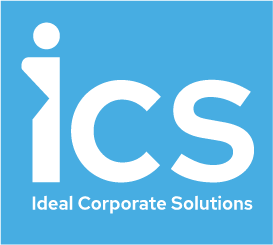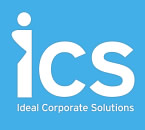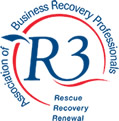ICS Bulletin for Professionals: Corporate Insolvency and Governance Act
Jun 29, 2020

We have some new tools to help your clients!
The new legislation brings with it new tools available within an Insolvency Practitioners’ toolkit to be deployed when clients are facing financial difficulty. The Government has produced some fact sheets on the new measures and can be found here if you’re interested, however we will summarise below.
Company Moratorium
• 20 business days protection from creditor action, including from secured creditors and landlords – which can be extended
• The time to be used to formulate a plan for rescuing the company as a going concern
• This can include seeking investment or debt finance as part of the turnaround plan, a CVA is also an acceptable exit route from the moratorium to rescue the company
• Directors remain in charge of the company, the IP is formally appointed as Monitor – comparing to an Administration when the directors’ powers cease
• Available to a company which is, or is likely to become, unable to pay its debts
The moratorium process gives a company a significant amount of protection from creditors whilst it allows breathing space to formulate a plan to rescue the company as a going concern. This process can only be used if there is a prospect of rescue, not to delay an inevitable insolvency process.
This is likely to be a useful tool when a company is experiencing creditor pressure and threats of insolvency or other recovery action however there is a viable prospect of turning the business around – e.g. there is a strong future order book, however the company requires protection to get through to that point, perhaps also as part of a wider re-financing exercise or raising funds.
If there is a chance of the company being rescued and the company is worried of being under threat, then a moratorium procedure would be a useful tool for the directors to implement.
There are a number of nuances to consider and criteria for implementation of the moratorium as well as strict conditions for ongoing review by the IP as monitor.
Restructuring Plan
The new legislation allows a new Restructuring Plan process, aimed to help viable companies struggling with debt to restructure under this new procedure. It provides for the court to sanction a plan that binds all creditors so long as it is fair and equitable and in the interests of creditors. Creditors vote on the plan however court can impose it on creditors who do not vote in favour, provided that the necessary conditions are met. When compared to a CVA, a CVA is not binding on secured creditors, therefore secured creditors always have the power to trump the CVA and enforce their security whereas the new Restructuring Plan includes the benefits of a cross-class cram down.
This process closely resembles a scheme of arrangement, however with the added inclusion of cross-class cram down, which effectively prevents dissenting classes of creditors from blocking a restructuring that is in the best interests of the company. The Government believes creditors with no genuine economic interest (i.e. those who would receive nothing if the company was to enter an insolvency procedure), should not be able to frustrate a restructuring plan which may secure the company’s future, so long as those creditors are no worse off than they would be in an insolvency procedure.
What do clients need to do?
At the first sniff of insolvency or doubts about the company’s viability – SPEAK TO US!
We now have some extra tools to use when advising your clients, which centre around business rescue. These dovetail well with advisory and turnaround situations as well as the securing new or improved funding facilities to save companies.
As always, we will assess the company’s financial position and explore all available options from informal company rescue, rescue with the assistance of the moratorium, through to advising on what a “clean slate” would look like through company closure and restarting in a new company. We can also discuss personal financial concerns of directors too. The importance of seeking early professional advice cannot be underestimated – we will not charge for initial meetings/advice.
As a reminder, our four core service offerings are: -
1. Restructuring & Insolvency
2. Advisory
3. Funding Solutions
4. Personal Debt
SPEAK TO US
We are here to speak to whenever you like. We can set up a video conference between us, you and your client to deal with pressing matters and to bounce around ideas. As always, we don’t charge for initial advice and all our discussions are in the strictest of confidence.
We will be aiming to hold a webinar on this topic in the near future for all our accountant contacts to bring you up to speed on options for clients facing financial difficulty. We can also tailor webinars to individual firms, to give your teams some additional technical information or a refresher on the other options available for struggling clients – these can be as light touch as you like, through to as much details as you would want us to go into.
Andy - 07812 338252 or andrew.rosler@idealcs.co.uk
Tom - 07795 196619 or tom.bowes@idealcs.co.uk



